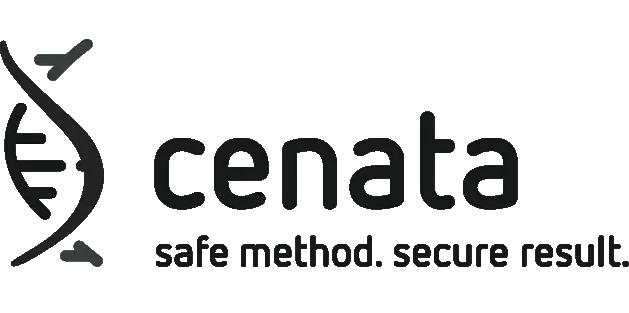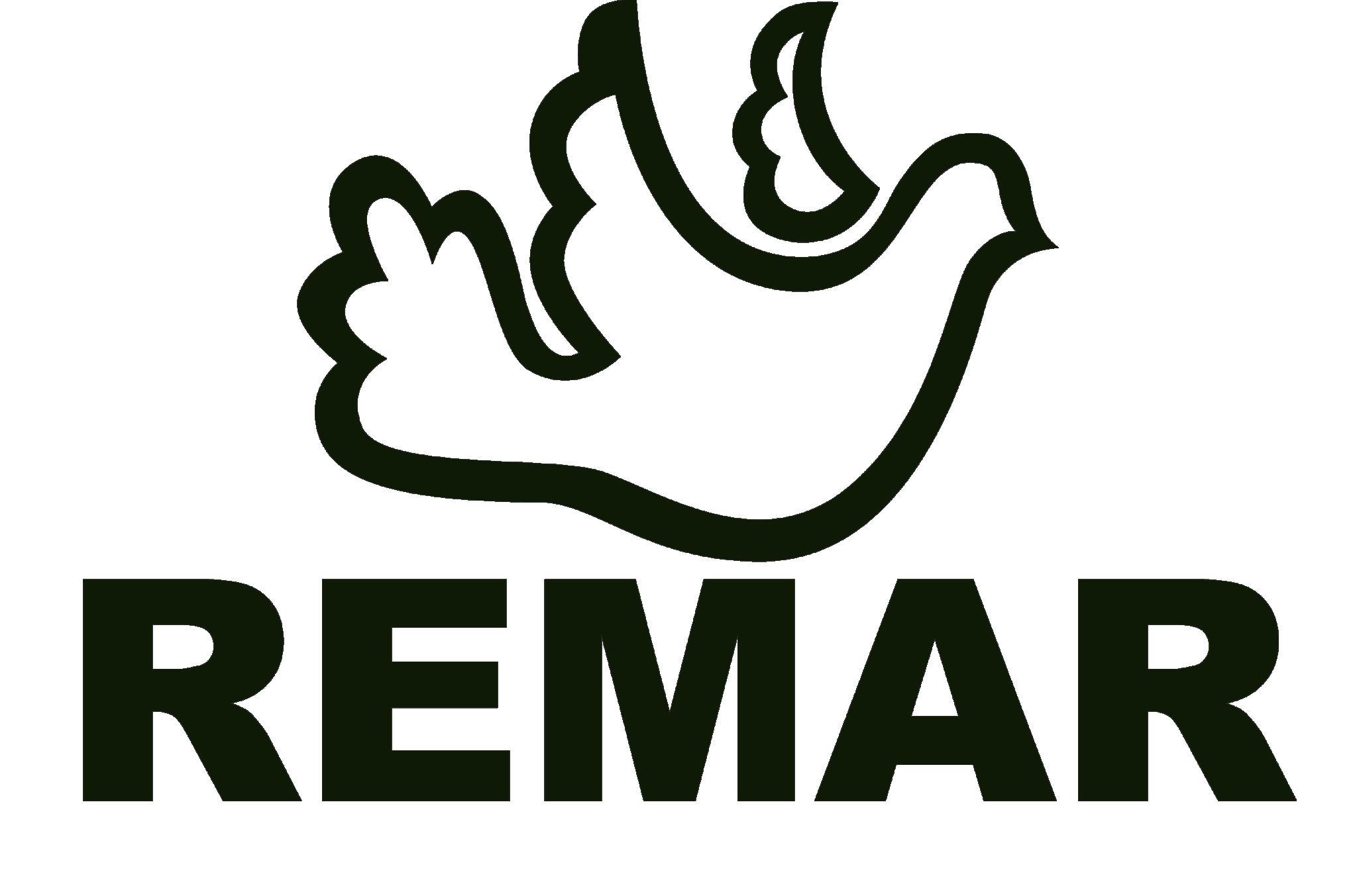SEO – Web design – Google Ads – Social media
Local SEO agency: More customers from your immediate vicinity
Increase your local visibility on Google – and attract new customers directly from your region.
Individual marketing solutions
AI SEO
With AI, you get intelligent suggestions, data-based insights and automated SEO optimization.
Onpage SEO
We optimize the structure, content and technology of your site for maximum performance and top rankings.
Content Marketing
With targeted content, we strengthen your brand, increase visibility and attract qualified customers.
Google My Business
We optimize your profile on Google, increase your local reach and ensure more inquiries.
International SEO
We bring your website to the forefront worldwide with smart SEO and secure top rankings in all markets.
Recruiting
We combine SEO with recruiting to target top talent and strengthen your company in the long term.




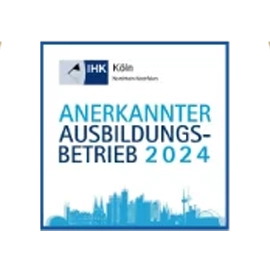
Local SEO: The key to more customers
Is your store or office in a good location, but you hardly appear in local searches online? Many local businesses have a first-class offering, but are not found by potential customers from their own city. The problem: Anyone looking for a tradesman, restaurant or lawyer in their area today will pull out their smartphone. If your company does not appear in the visible map area on Google – the so-called Local Pack – these orders will go directly to your competitors.
This is exactly where we come in as your local SEO agency. Local search engine optimization (also known as local SEO) is the most effective way to get to the top of the local search results. We use targeted SEO strategies to ensure that your company is visible exactly when customers in your area are looking for you and ready to buy.






Become the first choice for customers in your city
Local search queries are about immediate needs. Users don’t just want information, they want to call, get directions or drop by directly. To be successful here, you need to be the most relevant and trustworthy result for Google in your region.
Our job as local SEO experts is to optimize all relevant local signals. This starts with a perfectly maintained Google company profile and extends to the targeted on-page optimization of your website for local search terms. We ensure that you are not only found, but that you establish yourself as a top provider in your area.
Local SEO is not an expense – it is the most direct form of new customer acquisition
Many local businesses rely on walk-in customers or traditional advertising. Local SEO is far more efficient. Every euro you invest in local search engine optimization is aimed directly at attracting ready-to-buy customers who are already actively searching for your offer. It’s the digital version of prime location – only much more cost-efficient and easier to measure
Dominate local search and Google Maps:
We optimize your online presence so that you appear prominently in relevant searches in your area on Google Maps and in the search results. The result is measurably more direct calls, more clicks on directions and a noticeable increase in footfall for your business.
Convince with positive reviews and a professional appearance:
An optimized profile with many positive ratings is a strong signal of trust. It shows new customers that they can rely on you. We help you to develop a strategy for collecting real customer feedback and to maintain your profile in such a way that it radiates maximum professionalism.
Secure the decisive top positions:
While many of your competitors have forgotten the basics of local SEO neglect, we as SEO experts our entire know-how. We identify the right local keyword-opportunities and implement targeted measures so that you can position yourself in the decisive local pack to the top and stay there.
Analyze your website for free – more visibility now!
Have your website analyzed free of charge and discover optimization potential immediately. Get a quick SEO check with clear tips for better rankings, more visibility and more customers - free of charge, professionally and without obligation.
Our process: systematic, transparent and locally focused
Successful Local SEO is the result of a structured process. As an experienced SEO agency we guide you through every phase.
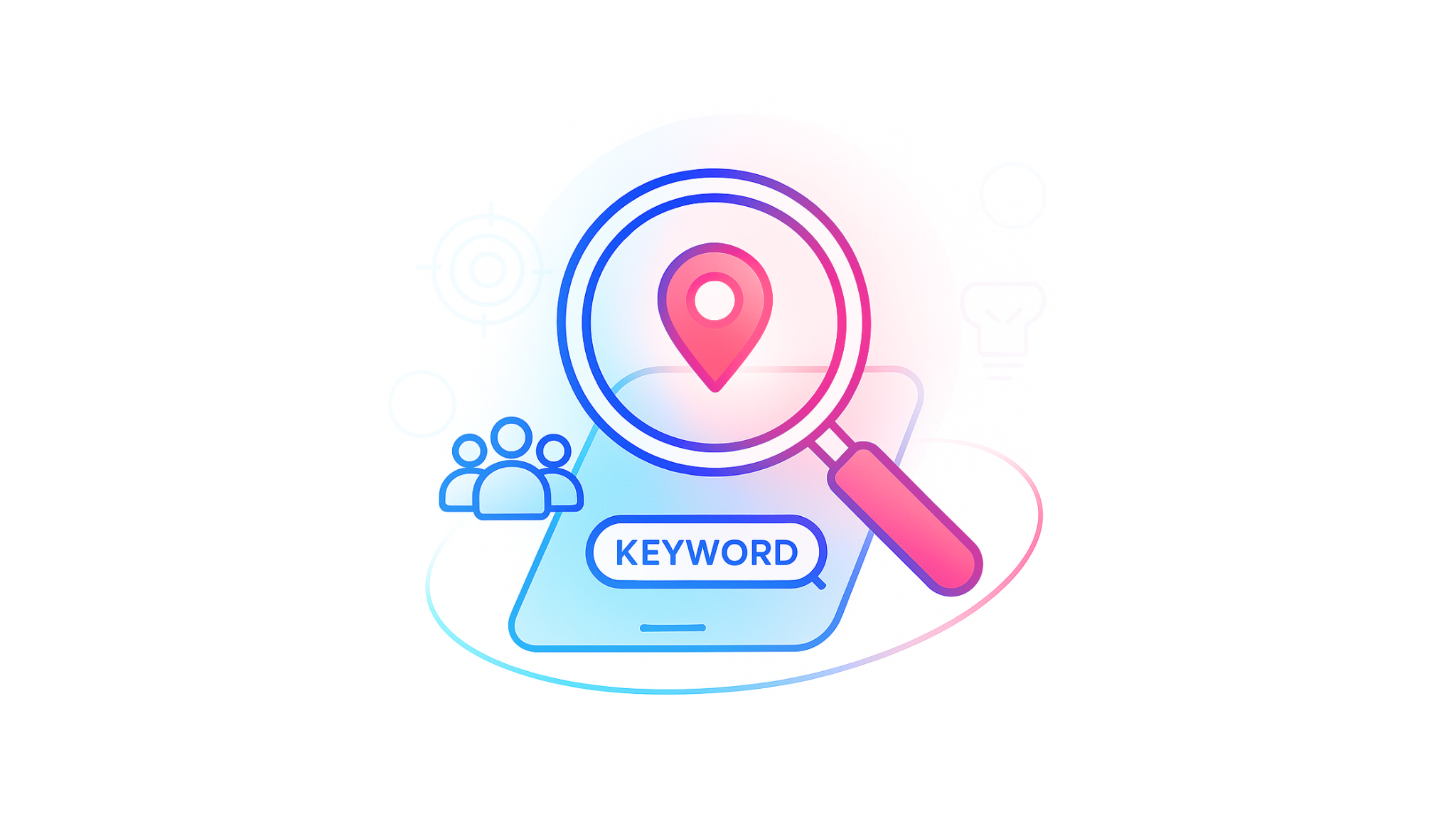
Analysis & consulting (The foundation):
It all starts with a detailed local SEO consulting. We analyze your current status, your competitors and define realistic goals together. You receive a clear assessment of your local potential.

Google company profile optimization (the core):
We optimize your most important local ranking factor: Your Google company profile. We ensure 100% correct data, select the right categories, upload high-quality images and enter all relevant information.
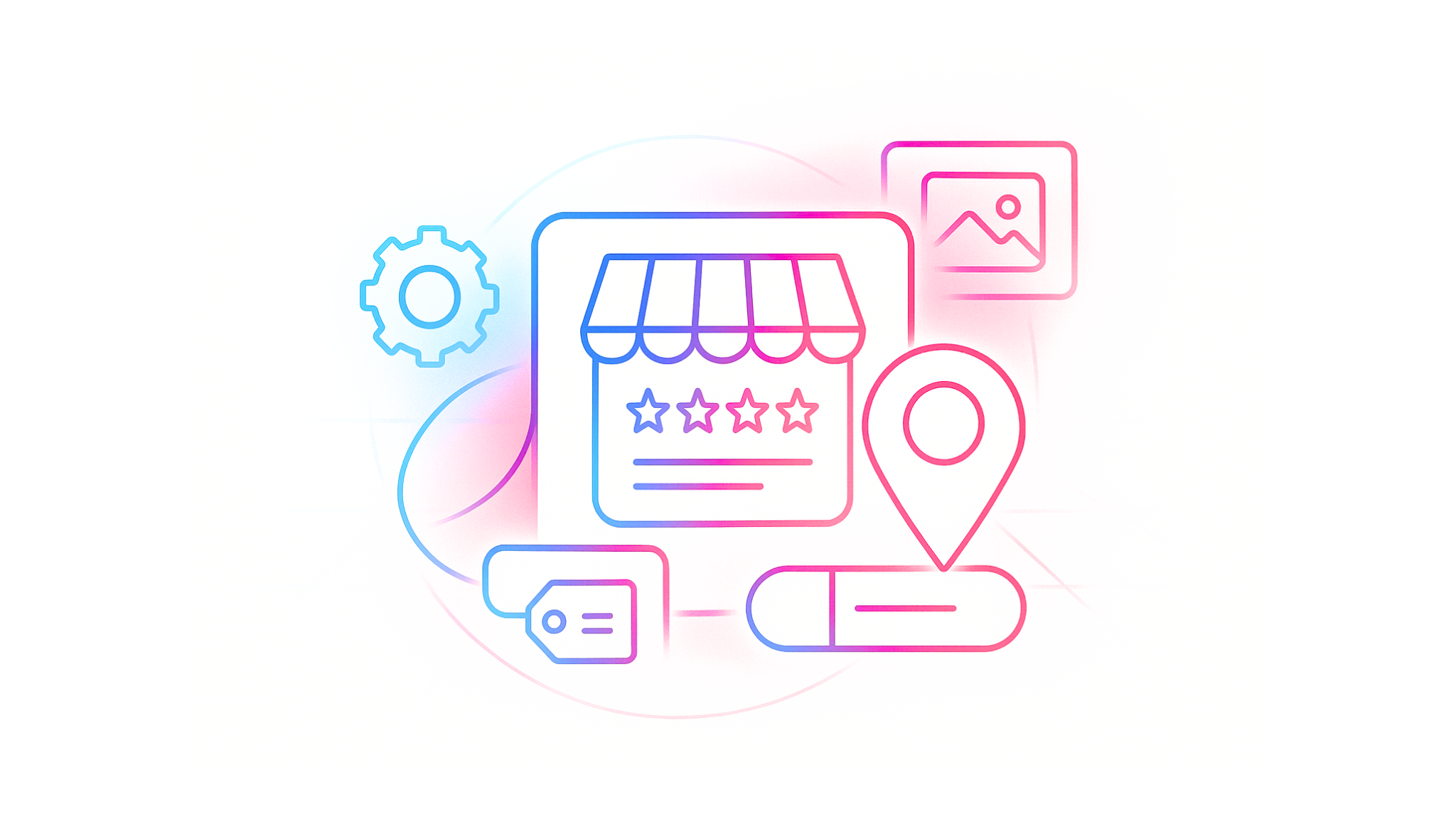
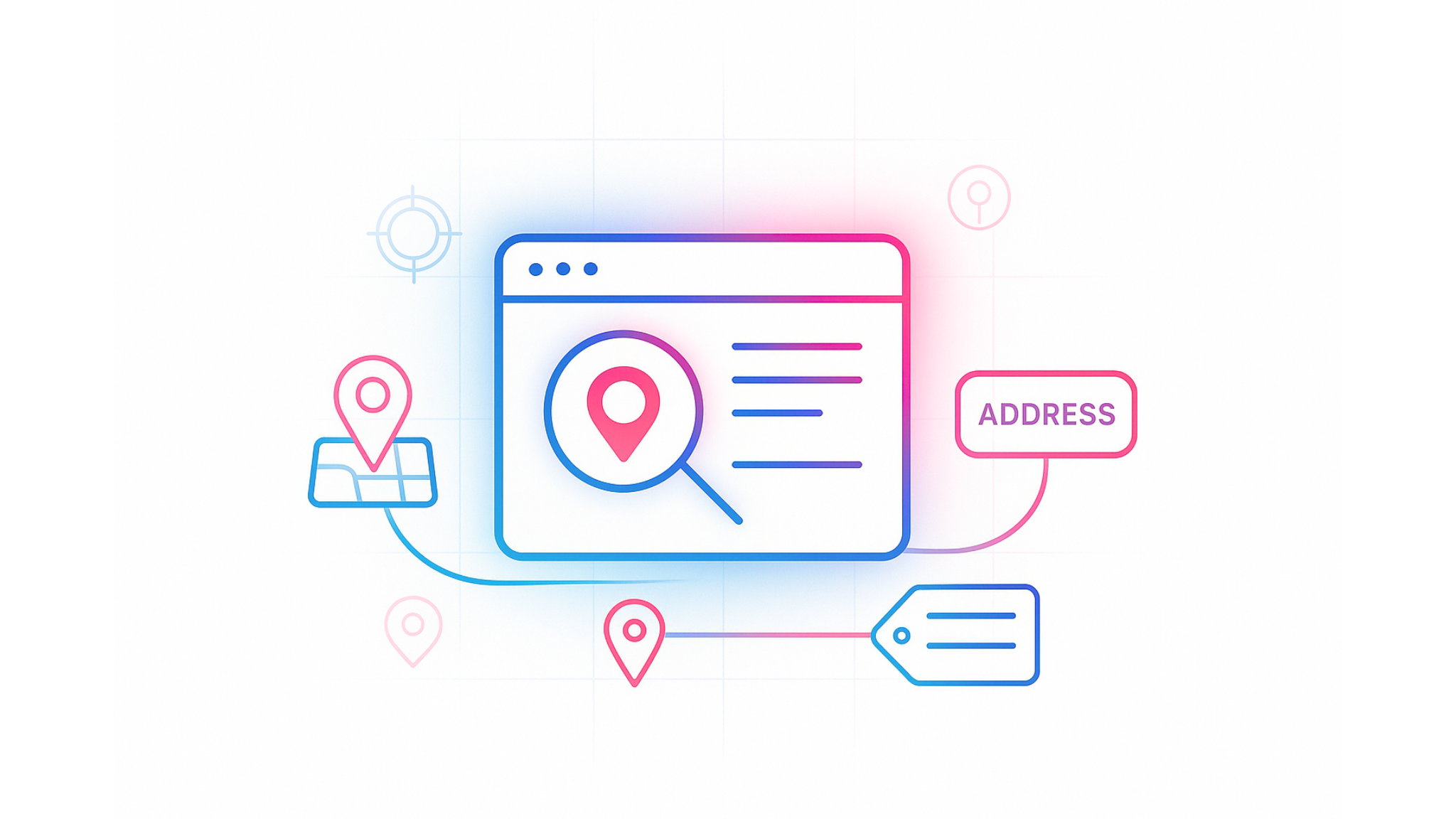
Local on-page optimization (the website):
Your website must signal your local relevance. We carry out a targeted onpage optimization by, for example, creating local landing pages, correctly integrating address data and aligning your content with local search terms.

Local link building & citations (The authority):
We strengthen the local authority of your website by ensuring consistent listings in important local online directories (citations) and building referrals from other relevant local websites.
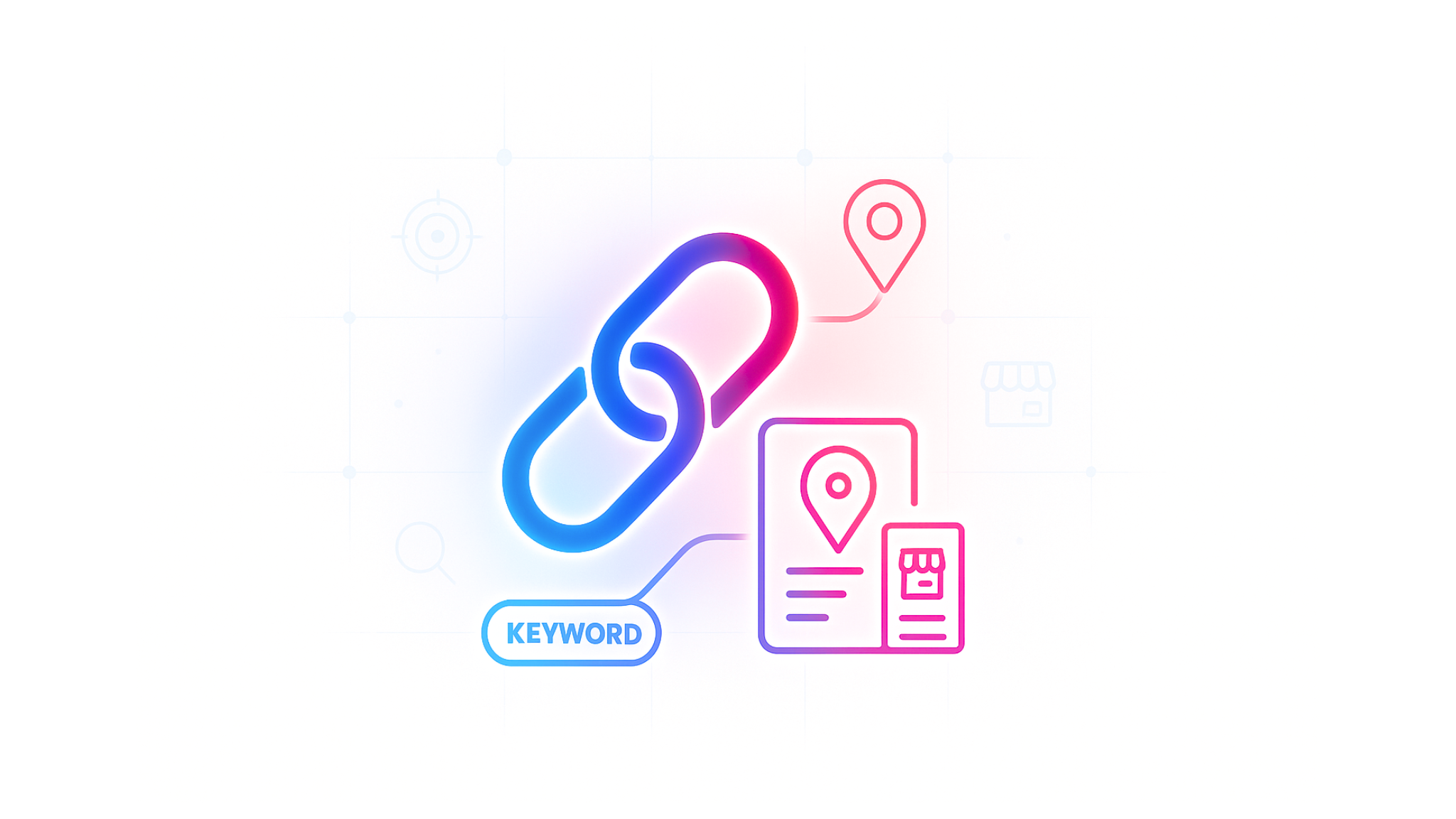
Are you ready to be found by more customers in your area?
Stop losing valuable orders to your direct competitors just because they are more visible online. Take advantage of the enormous opportunity that local search engine optimization offers you.
Let us analyze how we can bring your company to the top of the local search results in a free initial consultation.
Frequently asked questions (FAQ)
What is local SEO?
Local SEO (or local SEO) is a sub-area of search engine optimization that aims to increase the visibility of a company for geographically related search queries. The aim is to appear at the top of Google and on Google Maps for searches such as “hairdresser Leverkusen” or “tax consultant nearby”.
For whom is local SEO worthwhile?
Local search engine optimization is worthwhile for any business that serves customers at a physical location or offers services in a specific regional area. This includes, for example, craftsmen, doctors, lawyers, restaurants, retailers and all other local businesses. local businesses.
What is the difference between normal SEO and local SEO?
While traditional SEO concentrates on national or even international visibility, local SEO focuses on local SEO focuses on a clearly defined geographical area. The ranking factors are different and place a stronger emphasis on the Google company profile, local reviews and geographical relevance signals.
Can't I just do local SEO myself?
The basics of how to fill out your Google company profileyou can do yourself. However, to really be competitive and reach the top positions, you need in-depth knowledge of ranking factors, special tools and a well thought-out strategy. A local SEO Expert not only saves you time, but also ensures sustainable and measurable results.
Learn more
Analysis
Do you know what your customers are googling? Through extensive keyword research, competitor analysis and the observation of user behavior, we leave nothing to chance. Your site is also subjected to a detailed analysis, in which aspects such as loading speed, website structure or user-friendliness are examined – all important aspects for the correct Google rating! Once the analysis results have been evaluated, we know exactly how long a text should be, which content is particularly relevant and which cities should be targeted. This is how we create your personal concept for customer acquisition.
SEO optimization
Based on your personal concept, our experienced content authors write appealing content that meets both Google ‘s requirements and the wishes and ideas of your customers. At the same time, your website will be optimized so that Google gives it a better overall rating. This way, you will be among the top search results in your area in no time at all.
Monitoring
The evaluation criteria of search engines and your customers’ searches are constantly changing! Our SEO professionals continuously monitor your website and keep an eye out for positive or negative changes to individual pages. As soon as there is a need for action, our team acts immediately and optimizes your website to the current standard. You will always be kept up to date through detailed evaluations and discussions.
Local SEO for your company
The SEO Marketing Agency has already helped many companies to achieve higher visibility and better rankings. Contact us today for a free, no-obligation consultation on our local and regional SEO services.
Individual local SEO support
- Better rankings, thanks to SEO optimized websites
- Stand out from local search results
- Individual strategy, through keywords, competitor analyses and more
- Holistic online marketing with many services!
Holistic marketing support
- Detailed marketing
advice - Holistic strategies
for your company - Long-term
successes - One contact for all concerns
What is local and regional SEO?
Local and regional SEO are critical components for businesses looking to strengthen their online presence in specific geographic areas. These strategies within search engine optimization (SEO) aim to improve the visibility of a website in local search results to target potential customers in close proximity.
Local SEO focuses on optimizing a website to be more visible in local search results. This is particularly important for businesses with physical locations such as stores, restaurants or service providers that operate locally. Key elements of local SEO include optimizing Google My Business (GMB) listings to ensure that businesses show up in the local 3-pack results and on Google Maps. In addition, local SEO includes local keyword optimization, creating local landing pages, managing online ratings and reviews, and ensuring a consistent NAP (name, address, phone number) listing across all online platforms.
Regional SEO, on the other hand, has a broader focus and concentrates on optimizing a website for a specific region or geographic area that is larger than a single city or municipality. Companies that operate in multiple cities or states can benefit from regional SEO strategies. These include creating content that relates to regional topics and events, optimizing meta tags and descriptions for regional keywords, and creating backlinks from regional websites and directories.
The aim of local and regional SEO is to improve the visibility of a website in search results for users who are looking for locally or regionally relevant information, products or services. By implementing targeted SEO strategies, companies can increase their chances of being found by potential customers who are based in their immediate vicinity or are located in their target region. This can lead to an increase in organic traffic, improved customer retention and ultimately more sales and growth.
What are the differences between traditional SEO and local and regional SEO?
Traditional SEO and local or regional SEO are two approaches within search engine optimization (SEO) that have different focuses and differ in their strategies and tactics. Here are the main differences between them:
Target group and reach:
- Traditional SEO focuses on improving the visibility of a website in organic search results, regardless of the geographical location of users. It aims to reach a broad target group, which can be anywhere in the world.
- Local and regional SEO, on the other hand, focus on a geographically limited target group. They aim to address users who live or are located in a specific city, region or geographical area. The focus is on reaching and addressing local or regional customers.
Keywords and content:
- Traditional SEO often uses general keywords and content that is not specific to a particular geographic region. Optimization is based on global or industry-specific keywords.
- Local and regional SEO, on the other hand, involves the use of locally or regionally relevant keywords and content relating to specific locations, districts, cities or regions. Optimization is based on local search queries and demographic characteristics of the target group.
Google My Business and local directories:
- Traditional SEO places less emphasis on optimizing Google My Business listings and local directories, as the focus is more on optimizing website content and off-page factors.
- Local and regional SEO places great importance on optimizing Google My Business listings, local directories and review platforms such as Yelp or TripAdvisor. These listings and directories are crucial for visibility in local search results and for interaction with local customers.
Backlinks and off-page optimization:
- Traditional SEO places a strong focus on building high-quality backlinks from authoritative websites to improve the authority and ranking of a website in search engines.
- Local and regional SEO also include backlink building, but with a focus on local or regional sources and websites. This can include the inclusion of local news sites, business directories and local blogs.
Overall, traditional SEO and local or regional SEO are two different approaches within search engine optimization that aim to target different audiences and achieve different business goals. Choosing the right approach depends on the specific requirements and goals of a company.
What tools are available to support local and regional SEO?
There are a variety of tools that can help businesses improve their local and regional SEO efforts. These tools offer features for analyzing, monitoring and optimizing local search results as well as managing online presences. Here are some of the most important tools for local and regional SEO:
Google My Business:
Google My Business is a free tool from Google that helps businesses manage their presence in Google search results and on Google Maps. Businesses can update their business data, manage customer reviews, upload photos and get insights into the performance of their listings.
Yext:
Yext is a local marketing and listings management platform that helps businesses manage their information on various online directories, search engines and social networks. Yext offers features for managing business information, ratings and reviews, and monitoring local search results.
Moz Local:
Moz Local is a tool from Moz that helps businesses manage and optimize their local presence. It offers features for checking and updating company information on various online directories and platforms, as well as monitoring local search results and competitive analysis.
BrightLocal:
BrightLocal is an all-in-one local marketing and SEO platform that helps businesses improve their local presence and manage customer reviews. It provides features to review and manage company information, track local search results and generate reports on the company’s performance.
SEMrush:
SEMrush is a comprehensive SEO tool that also offers features for local and regional SEO. It allows you to analyze local search results, identify local keywords, monitor competitors and track performance in local search results.
Ahrefs:
Ahrefs is a powerful SEO tool that also offers features for local and regional SEO. It allows you to analyze local search results, identify local keywords, monitor competitors and track performance in local search results.
These tools provide businesses with a variety of features and analytics to improve their local and regional search engine presence and target potential customers in their immediate area. By using these tools effectively, businesses can maximize their local visibility, manage customer reviews and optimize their local marketing.
Basics of local SEO
Local SEO (search engine optimization) is a specialized strategy that aims to increase a company’s visibility in local search engine results. This form of SEO is particularly important for small and medium-sized businesses, as well as larger companies with local branches, as it helps to improve rankings in search queries that contain geographically relevant signals. This includes everything from “nearby” to specific city names or even neighborhoods.
Why is local SEO important?
- Increased visibility: Local SEO helps businesses to rank more prominently in local search results, increasing the likelihood of potential customers finding them. This is particularly important as, according to Google, 46% of all search queries are local.
- Targeted reach: Local SEO enables companies to target customers in their immediate vicinity. This is particularly effective as users who carry out local search queries often have a higher propensity to buy, as they are specifically looking for products or services that they need immediately.
- Competitive advantage: For small and medium-sized businesses, local SEO can provide a crucial competitive advantage by allowing them to be more visible against larger chains or online businesses that may not have a strong local presence.
- Improving the user experience: Local SEO not only improves visibility, but also the user experience by ensuring that customers have easy access to important information such as location, opening hours and contact details.
Basic elements of local SEO
- Google My Business (GMB): An optimized GMB listing is crucial for successful local SEO. This free tool from Google allows businesses to manage their presence in Google search results and on Google Maps. It is important that all information is current and updated regularly to ensure accuracy and relevance.
- Local keywords: The integration of geographically specific keywords in website content, meta descriptions and title tags can help to increase relevance for local search queries.
- Reviews and local backlinks: Positive reviews and local backlinks from trusted websites within the same geographic region can improve a company’s credibility and ranking.
- Mobile optimization: Since many local searches are performed on mobile devices, it is crucial that a website is mobile-friendly to ensure a positive user experience.
- Structured data: Using schema markup can provide search engines with additional contextual information about the business such as location, opening hours and reviews, which can further improve local rankings.
Local SEO is an essential component for any business that wants to remain visible and relevant in their local community. By implementing a strategic local SEO campaign, businesses can not only improve their online presence, but also have a real and measurable impact on their business success.
Optimize Google My Business:
Google My Business (GMB) is a crucial tool for any local business that wants to increase its visibility in Google searches and on Google Maps. A well-maintained GMB page can go a long way to attracting new customers and building trust with existing ones. Here is a detailed guide to creating and optimizing your Google My Business profile.
Creation of a Google My Business profile
- Create or use a Google account: You need a Google account to create a GMB profile. Use an account that you use specifically for business purposes or create a new one.
- Register with Google My Business: Visit the Google My Business website and select “Start now”. Enter your business name and follow the instructions to register your business.
- Enter business information: Add accurate and detailed information about your business, including name, address, phone number, website and hours of operation. Make sure this information matches that on your website and other online platforms.
- Verify location: Google will ask you to verify your location to make sure your business is legitimate. This is usually done via a postcard sent to your business address with a code that you need to enter for verification.
Optimization of your Google My Business profile
- Completeness of information: A complete profile is essential. Make sure all fields are completed and updated regularly to ensure accuracy.
- Add high-quality photos: Images attract attention and give potential customers an insight into your business. Upload high-quality photos of your business, products or services. Regular updates keep your profile interesting and engaging.
- Collect and manage Google reviews: Reviews are a powerful tool to build trust and credibility. Encourage satisfied customers to leave reviews and respond professionally to all reviews – both positive and negative.
- Use posts and updates: Google My Business offers the ability to publish posts, similar to social media platforms. Use this function to share special offers, events or news.
- Monitor Q&A section: The Q&A section allows users to ask questions that are publicly visible. Monitor this section regularly and respond quickly to ensure accurate information and show engagement.
- Use of Insights: Google My Business provides analytical data (Insights) that show how customers find and interact with your business online. Use this data to further optimize your profile and adapt your marketing strategies.
By setting up and carefully maintaining your Google My Business profile, you can significantly increase local search efficiency and build a stronger connection with your local customer base. This is an essential part of any local SEO strategy.
Use local keywords:
The use of local keywords is a crucial part of a successful local SEO strategy. By integrating these keywords into your website, you can increase your visibility for local search queries and better target potential customers in your immediate area. Here are some steps to researching and integrating effective local keywords:
1. understand your target group and your region
First, identify which geographic areas are important to your business. This could be cities, neighborhoods, districts or even states, depending on where your audience is located. Understand the specific terms and phrases your target audience uses to search for products or services in your region.
2. carry out keyword research
Use tools such as the Google Keyword Planner, Google Trends or local keyword research tools to search for relevant local keywords. Consider both general keywords and long-term keywords that are specific to your industry and region. Think of terms that potential customers might use when searching for your offer.
3. take local variations into account
One and the same keyword can have different variants depending on how it is used regionally. Therefore, consider synonyms, abbreviations, slang and specific place names. For example, “restaurant Munich” can also be searched for as “restaurant in Munich” or “food in Munich”.
4. integration into your website
Strategically integrate the identified local keywords into different areas of your website, including:
Title tags
Meta descriptions
Headings (H1, H2 etc.)
Text content, including product descriptions, service pages and blog posts
URL structure
Image Alt Tags
Make sure the use of these keywords is organic, meaningful and provides value to readers. Avoid excessive keyword stuffing as this can affect the user experience and be penalized by search engines.
5. create local landing pages
Create specific landing pages for different geographical areas that you want to target. These pages can include information on locations, services or products relevant to these regions and can be specifically targeted to the relevant local keywords.
Through the targeted use of local keywords, you can increase the relevance of your website for local search queries and target potential customers who are actively searching for products or services in your area. This can lead to higher visibility, more website traffic and ultimately more sales.
NAP consistency (name, address, telephone number):
The consistency of NAP data (name, address, phone number) is a crucial factor for the success of local businesses in the digital age. Displaying this information correctly and uniformly across all online platforms is crucial for local search engine rankings and for gaining the trust of potential customers. Here are some reasons why NAP consistency is so important:
1. trustworthiness and credibility
Consistent NAP data conveys trust and credibility to customers. If the information is the same everywhere, users feel more confident that the company is legitimate and actually offers the specified products or services.
2. improved local ranking
Search engines like Google use NAP consistency as an important ranking factor for local search queries. Consistent information signals to search engines that the business is trustworthy and actually exists in the specified location, which can lead to a better ranking in local search results.
3. avoidance of confusion and frustration
Inconsistent NAP data can lead to customer confusion. For example, if the address on Google My Business differs from the address on the company website, this can lead to confusion and discourage customers from visiting the business.
4. uniform online presence
A consistent NAP presentation ensures a uniform online presence, regardless of the platforms on which potential customers search for your company. This creates a strong brand identity and makes it easier for customers to find and contact your company.
5. simplified administration
Maintaining consistent NAP data makes it easier to manage your online presence. By updating your information in one central location, you can ensure that all platforms are synchronized and no inconsistencies occur.
Overall, consistency of NAP data is critical to the success of local businesses in the digital space. By ensuring your information is presented consistently across all online platforms, you can boost customer confidence, improve your local ranking and increase your business’ discoverability.
Ratings and reviews:
Ratings and reviews play a central role for local businesses, as they not only build credibility and trust with potential customers, but also have a significant impact on local search engine rankings. Here is an overview of the importance of customer reviews and strategies to encourage positive feedback:
Importance of ratings and reviews
Credibility and trust: Customer ratings and reviews serve as social validation and help other customers build trust in your business. Positive reviews can convince potential customers that your company is reliable and of high quality.
Local ranking: Search engines such as Google take ratings and reviews into account as ranking factors for local search results. Companies with many positive reviews tend to have a higher visibility in the search results.
Customer expectations: In today’s digital era, consumers often look for reviews to make purchasing decisions. Companies with positive reviews therefore have a competitive advantage and are more likely to attract new customers.
Strategies for encouraging evaluations
Provide excellent customer service: Excellent customer service is the best way to get positive reviews. Make sure your customers are satisfied and have a positive experience that motivates them to share their opinion.
Simple review requests: Actively ask your customers to leave a review by asking them in a friendly manner after they have made a purchase or used your service. Make sure the process is simple and straightforward, e.g. by sending an automated email with a direct link to the review platform.
Offer incentives: Reward customers for their reviews, e.g. by offering discounts or exclusive offers to those who leave a review. This can increase the motivation to provide feedback.
Respond to reviews: Take time to respond to all reviews, both positive and negative. Thank customers for their feedback and show your commitment to excellent service.
Integration of review links on the website: Add links to the various review platforms on your website to make it easier for customers to leave reviews.
By implementing these strategies, local businesses can collect positive ratings and reviews to boost their credibility, improve their local ranking and attract new customers.
Local backlinks:
Building high quality local backlinks is an essential part of a successful local SEO strategy. These backlinks come from local sources such as industry leaders, newspapers, local websites and directories and can significantly improve your business’s local search engine ranking. Here are some strategies to build quality local backlinks:
1. local business directories and lists
Register with local business directories and listings that are specific to your industry and region. These directories can provide local backlinks while increasing the visibility of your business in the local community.
2. partnerships with local organizations
Cooperate with local organizations, non-profit associations, schools or other companies in your region to build reciprocal backlinks. This can be done by sponsoring events, joint projects or partnerships.
3. local press and media
Contact local newspapers, magazines and online news sites to report on interesting stories, events or developments in your business. If your story is published, you will receive a quality backlink from a trusted local source.
4. ratings and recommendations
Actively encourage local customers to leave reviews and recommendations on relevant platforms. Positive reviews can lead to natural backlinks when local bloggers or other businesses talk about their positive experiences with your business.
5. local blogs and forums
Get involved in local online communities, forums and blogs by writing relevant posts, answering questions and giving advice. This can help build relationships with other local businesses and identify potential backlink opportunities.
6. events and sponsorships
Sponsor local events, trade fairs or charity events and ask for a mention of your company on the relevant event pages. This can lead to backlinks from the event organizers or other sponsors.
7. local social media groups
Join local social media groups and communities and share relevant content and information. This can help promote your business in the local community and find potential backlink opportunities.
8. guest articles and expert contributions
Offer yourself as a guest author or expert for local blogs, magazines or industry publications and publish informative articles on relevant topics. This not only allows you to demonstrate your expertise, but also to receive high-quality backlinks.
By using these strategies in a targeted manner, you can build high-quality local backlinks that will improve your company’s local ranking and strengthen your online presence in the local community.
Local landing pages:
Creating local landing pages is an effective strategy to improve your company’s visibility in specific cities or regions and attract potential customers. Here are some best practices for designing landing pages that target specific cities or regions:
1. local keyword research
Conduct thorough keyword research to identify relevant local search terms used by your target audience. These keywords should be specific to the respective city or region and reflect local search interest.
2. city or region-specific content
Create content that is specifically aimed at the residents of a particular city or region. This can include information about local events, attractions, businesses or cultural features that are relevant to your target audience.
3. local contact information
Make sure your landing page contains clear and visible contact information, including your address, phone number and opening hours for each location. This will make it easier for potential customers to contact you or visit you in person.
4. local reviews and references
Integrate customer reviews, references or case studies from the respective city or region to strengthen the trust of potential customers and increase your credibility.
5. local images and visuals
Use images, graphics or videos that are specific to the target region and reflect the local identity and atmosphere. This can encourage potential customers to identify with your company and create an emotional connection.
6. local SEO optimization
Optimize your landing page for local search engine optimization (Local SEO) by using local keywords in the title tags, meta descriptions, headings and content areas. Make sure your page is verified on Google My Business and other relevant local directories.
7. user-friendliness and mobile optimization
Ensure an optimal user experience by making your landing page user-friendly and optimizing it for mobile devices. This includes fast loading times, clear call-to-actions and clear navigation.
8. local offers and campaigns
Integrate special local offers, discounts or promotions on your landing page to appeal to potential customers and motivate them to take action.
9 Geographical orientation
Use geographic targeting tools to ensure that your landing page is displayed to users in the relevant city or region.
10. analysis and optimization
Track the performance of your local landing pages using analytics tools and continuously optimize them to improve conversion rates and increase user engagement.
By implementing these best practices, you can create effective local landing pages that will help increase your company’s visibility, improve local rankings and appeal to potential customers in your target region.
Mobile optimization:
Mobile optimization plays a crucial role in local SEO as a growing number of searches are made from mobile devices. With the proliferation of smartphones and tablets, it has become essential for businesses to optimize their online presence for mobile users. Here are some reasons why mobile optimization is so important for local SEO:
1. increase in mobile search queries
More and more people are using their mobile devices to search for local businesses, services and products. Studies show that more than half of all local searches are made from mobile devices. Mobile optimization ensures that your website is optimized for this user experience and that your content is quickly and easily accessible.
2. improved user experience
A mobile-optimized website offers an improved user experience for mobile users. This means faster loading times, user-friendly navigation and optimized content that is tailored to the screen size and format of mobile devices. A positive user experience increases the likelihood that visitors will stay on your website, engage with your content and ultimately become customers.
3. local relevance
Google and other search engines take the mobile-friendliness of a website into account when assessing its relevance for local search queries. A mobile-optimized website signals to search engines that you meet the needs of mobile users and thus increases your chances of being displayed in local search results.
4. location-based services and functions
Mobile devices offer features such as GPS and location services that allow search engines to provide search results based on the user’s current location. A mobile-optimized website allows you to make the most of these location-based features to target potential customers in your immediate area.
5. competitive advantage
A mobile-optimized website can give you a competitive edge, as many local businesses may not yet be fully adapted to the needs of mobile users. By making sure your website is optimized for mobile devices, you can stand out from the competition and better target potential customers.
Overall, mobile optimization is crucial for local SEO as it improves your business’s visibility in local search results, optimizes the user experience and gives you a competitive advantage. By investing in mobile optimization, you can ensure that your business is optimally positioned for the increasing number of mobile users and remains successful in the long term.
Social media for local SEO:
Integrating social media into your local SEO strategy can help increase your business’s visibility and build brand awareness in your local community. Here are some ways you can use social media for local SEO:
1. create local content
Publish content on your social media platforms that is specifically tailored to your local community. This could be announcements of local events, promotions or special offers for your local clientele. By providing relevant and interesting content for your local followers, you can increase their engagement and interaction with your brand.
2. use local hashtags and geotags
Integrate local hashtags and geotags into your social media posts to increase your reach in the local community. Use hashtags that are specific to your city or region and geotags to make your posts visible to users near your location. This makes it easier for potential customers to discover your posts and connect with your brand.
3. interact with local followers
Encourage interaction with your local target group by replying to comments, answering questions and initiating conversations. This shows your followers that you are active and engaged and builds trust in your brand. By building relationships with local followers, you can gain more loyal customers and improve your local visibility.
4. share local reviews and recommendations
Use social media to share positive reviews and recommendations from satisfied customers. This can help build trust with potential customers and encourage them to give your business a try. Also share content from local influencers or partners to increase your credibility in the local community.
5. create local events and campaigns
Organize local events or promotions and promote them through your social media channels. This can include participating in local trade shows or events, running special promotions in your store or organizing charitable events. By promoting local events, you can attract the attention of your local target audience and increase brand awareness.
6. offer local insights and tips
Share local insights, tips and recommendations on your social media platforms that could be useful to your target audience. This could be insider tips on popular local attractions, restaurants or stores, or information about local events and activities. By providing valuable information, you can gain the trust of your local followers and strengthen your position as an expert in your industry.
By using social media as part of your local SEO strategy, you can increase the visibility of your business in your local community, raise brand awareness and build long-term relationships with local customers. By sharing relevant and engaging content, interacting with local followers and promoting local events and promotions, you can strengthen your local presence and position your business for success.
Monitoring and adaptation:
Monitoring and adjusting the performance of your local SEO strategy is crucial to ensure that you can make continuous improvements and respond to changes in search algorithms or the competitive landscape. Here are some effective ways to monitor the performance of local SEO and adjust your strategies accordingly:
1. use of analysis tools
Google Analytics: Use Google Analytics to gain detailed insights into your website traffic. Pay particular attention to the sources of traffic, user behavior on your site and conversion rates. Specific segments and filters can help you to focus the data on local visitors.
Google Search Console: This platform provides valuable data about your website’s performance in Google search. Monitor the impressions, clicks and position of your website in the search results. The Search Console also shows problems with the website, such as indexing errors or security issues, which you should address.
2. local ranking tools
Use local ranking tools to understand how well your website performs for specific local search terms in different geographic locations. Tools like Moz Local or BrightLocal can help track and analyze your positions for local search queries.
3. monitoring of ratings and local feedback
Keep an eye out for reviews and feedback in local directories and on your Google My Business page. Reviews can be an indicator of your customers’ satisfaction and often provide direct insight into areas that could be improved.
4. competitive analysis
Conduct regular competitive analysis to understand how your competitors are performing in local search results. Analyze what strategies they are using and look for opportunities to differentiate yourself or learn from their tactics.
5. adaptation of the SEO strategy
Based on the data and insights gathered, adjust your SEO strategy to address weaknesses and capitalize on new opportunities. This can include optimizing your keywords, updating content or improving your internal link structure.
6. testing and experimenting
Experiment with different approaches in your local SEO strategy to find out what works best. A/B testing different landing pages or customizing the call-to-actions can provide helpful insights and improve performance.
7. regular review of technical SEO factors
Make sure that your website remains technically optimized. This includes regularly checking loading times, mobile-friendliness and other on-page SEO factors that can directly influence the ranking.
By continuously monitoring and adjusting your local SEO strategy, you can not only improve the visibility and ranking of your website, but also build a stronger bond with your local target group. Regular reviews and updates are essential to ensure that your SEO efforts are achieving the desired results.
Get in touch with us!
Do you want more visibility, more leads and sustainable growth? Then we are the right partner for you!
Whether you have questions, would like advice or want to get started right away - we look forward to getting to know you and starting your digital mission together.
Just write to us or give us a call - we are here for you!








